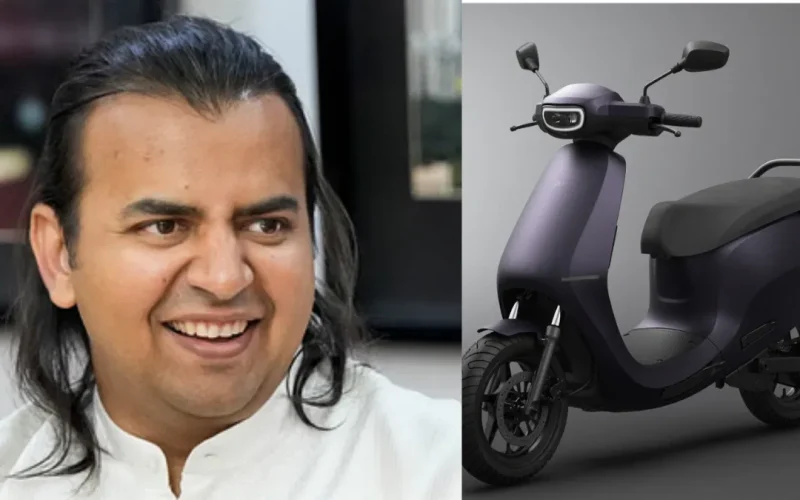Bhavish Aggarwal has emerged as one of the most prominent figures in India’s startup ecosystem, known for transforming mobility with Ola and later, Ola Electric but beyond the bold promises and billion-dollar valuations lies a complicated story—one that is riddled with exaggerated claims, unresolved product issues, and a workplace culture many have described as toxic.
In the beginning Aggarwal was lauded for his ambition and relentless drive, however, a closer look at Ola Electric’s journey reveals a trail of controversies that raises serious questions about his leadership style and the company’s true potential.
The Grand Promises of Ola Electric—Hype or Reality?
Ola Electric entered the market with grandiose claims of revolutionizing India’s electric vehicle (EV) domain. Aggarwal’s announcements about launching cutting-edge electric scooters—billed as the answer to India’s pollution woes—captured the imagination of consumers.
But as the dust settles, the reality of those claims are repeatedly under the lens.
Take, for instance, Aggarwal’s much-hyped declaration that Ola Electric is developing next-generation battery technology that will address range anxiety, charging speeds, and safety concerns.
However, while this has attracted investor interest and fueled the media narrative, the lack of technical transparency has left many skeptical, is there hard data or real-world tests to back these bold assertions.
Instead, what customers have experienced is a litany of issues -overheating batteries, unexplained breakdowns, and a general lack of reliability. Many early adopters who flocked to Ola’s flagship scooters now feel they were sold a dream that the company is struggling to deliver.

Ola Electric receives show cause notice amid service concerns
Currently, posing more problems, Ola Electric Mobility Limited has recently received a show cause notice from the Central Consumer Protection Authority (CCPA) for alleged violations of consumer rights, misleading advertisements, and unfair trade practices.
As of 10:10 am today, shares of Ola Electric were trading at ₹89.05, down by ₹1.77 or 1.95 percent on the NSE. This follows a sharp decline in the stock price yesterday, when it fell by around 8.88 percent.
The electric vehicle manufacturer has been given 15 days to respond to the notice. Ola Electric has stated that it will provide supporting documents within the given timeframe, with Chief Financial Officer Harish Abichandani signing the official intimation.
The development comes closely as there is growing public criticism of the company’s customer service. Over the weekend, CEO Bhavish Aggarwal was involved in a public dispute on social media with comedian Kunal Kamra over issues related to Ola’s electric scooters. Despite the notice, the company has clarified that it currently has no impact on its financial, operational, or other activities.
Product Shortcomings, Too Much, Too Soon?
Despite Aggarwal’s vision of a greener, smarter future for transportation, Ola Electric’s execution has been rocky. The S1 and S1 Pro scooters, touted as revolutionary in terms of range and performance, have faced significant teething problems from battery malfunctions to delayed software updates, customers are left struggling with products that don’t quite live up to the promised standards.
This mismatch between vision and execution seems to stem from Aggarwal’s relentless push for speed over quality. While rapid scaling and quick product launches are hallmarks of the startup world, they have backfired in Ola’s case, eroding consumer trust in a product that was supposed to lead India’s electric revolution.
Many now wonder if Ola Electric’s high-tech façade is more smoke and mirrors than genuine breakthrough innovation.
Toxic Work Culture. A Reflection of Leadership?
The most damning controversy surrounding Bhavish Aggarwal perhaps is the increasingly public accusations of a toxic work environment at Ola Electric. Former and current employees have voiced concerns about an excessively high-pressure work culture, one where fear, stress, and extreme micromanagement are rampant. Reports describe a workplace driven by unrealistic deadlines, where employees are pushed to their limits, often at the expense of mental and physical well-being.
Aggarwal’s hands-on leadership style, which some have hailed as visionary, appears to veer into an obsession with control and perfectionism. Employees report working under immense pressure, with little tolerance for mistakes. This toxic atmosphere, critics argue, reflects a broader issue in Aggarwal’s approach: while ambition is crucial for scaling a business, the human cost of such unchecked intensity is often overlooked. As Ola scales, it’s becoming increasingly clear that behind the glossy image of innovation lies a work culture in need of a serious overhaul.

Innovation or Hollow Promises?
One of the core concerns about Bhavish Aggarwal is his tendency to overpromise and underdeliver. His sweeping claims about new battery technologies, expanded EV offerings, and turning India into a global EV hub sound impressive, but there has been little to show in terms of concrete results.
In many ways, Aggarwal’s aggressive announcements seem more designed to maintain investor interest than to reflect the company’s actual capabilities. The narrative of constant innovation is a powerful one in the tech world, but at some point, promises must be backed by tangible outcomes. Until Ola Electric delivers on its lofty goals, Aggarwal’s claims risk being seen as little more than marketing hyperbole.
The Fine Line Between Vision and Hubris
While Bhavish Aggarwal’s ambition is undeniable, yet there is a growing sentiment that his leadership may be fueled more by personal ego than a clear, sustainable strategy for success. His aggressive push for market dominance, coupled with his reported disregard for employee welfare, paints a picture of a founder whose ambition might be undermining the very company he seeks to propel to the top.
Aggarwal’s determination to make Ola Electric a key player in the global EV market is admirable, but the means by which he is attempting to achieve this goal are coming under increasing criticism. If Ola continues on its current trajectory—dogged by product issues, employee dissatisfaction, and unfulfilled promises—Aggarwal risks tarnishing his legacy as one of India’s foremost entrepreneurs.
Bhavish Aggarwal. Leader in Crisis
At this critical juncture, Bhavish Aggarwal’s leadership is being tested more than ever. While he has positioned himself as the face of India’s EV revolution, the cracks are beginning to show. The controversies surrounding product reliability, toxic work culture, and unsubstantiated technological claims have cast a shadow over his vision.
For Aggarwal to maintain his status as a pioneering figure in Indian entrepreneurship, he will need to confront these issues head-on.
A shift in leadership style, greater transparency about product capabilities, and addressing the toxic work environment are essential if he is to deliver on the promises that have fueled Ola Electric’s rise. Otherwise, Aggarwal risks being remembered not as a visionary, but as yet another founder whose unchecked ambition led to a fall from grace.









